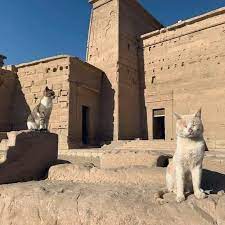Abu Hurairah followed Muhammad in his travels, listening and learning from him. He was known for having a prodigious memory, and could recite thousands of hadith. Hadith (Arabic; "talk" or "discourse") are reports of what Muhammad said (or approved of based on his actions or inactions). He was so famous for his knowledge of these that one of the foremost authorities on jurisprudence admitted to marrying Abu Hurairah's daughter to be closer to Abu Hurairah and his knowledge of hadith.
Horses were also important to Abu Hurairah, but in a different way: he made himself a wealthy man by horses. Well, not just by breeding horses. He participated in the Ridda Wars, begun after Muhammad's death by the Rashidun Caliphate to bring to heel rebellious Arabian tribes. The Rashidun Caliphate was successful in all engagements, and the process of uniting all of the Arabian Peninsula under one rule was begun.
A mausoleum was constructed to honor him in 1274 by the Mamluk Sultan Baibars. There has been some scholarly disputation over the trustworthiness of the hadith attributed to Abu Hurairah, but it is mostly along Sunni-Shia lines: Abu Hurairah falls into the Sunni camp, and the minority Shia arguments are mostly ignored.
The Rashidun Caliphate was the start of Islam spreading westward in the Mediterranean and toward Europe. I'll start talking about that campaign next time.

No comments:
Post a Comment
Note: Only a member of this blog may post a comment.